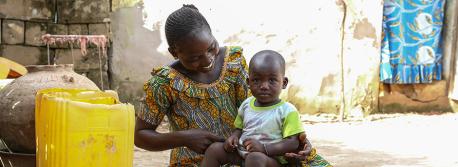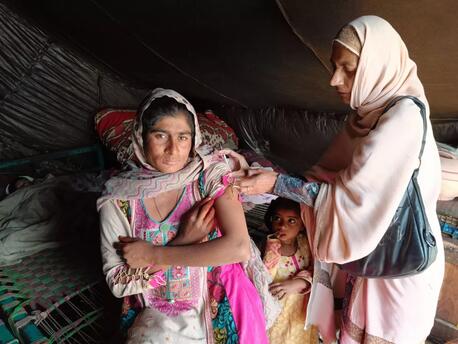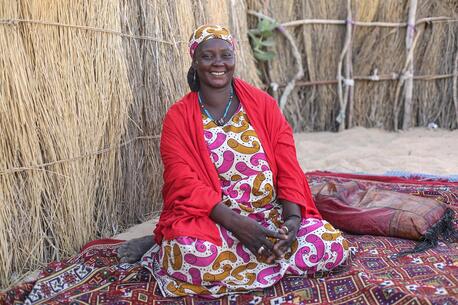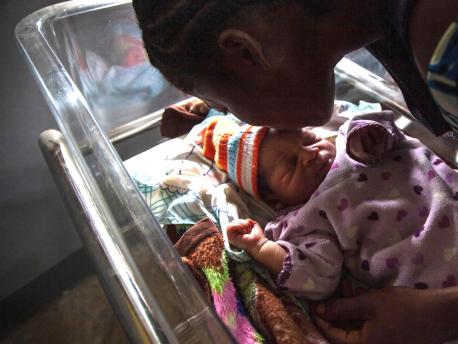
Maternal and Neonatal
Tetanus
UNICEF and partners have immunized millions of women all over the globe, helping to eliminate tetanus in dozens of countries. But that work must be accelerated to protect every mother and every child.
A vaccine-preventable disease that still claims tens of thousands of lives every year
Tetanus is an excruciating disease that kills tens of thousands of infants each year. Typically contracted through unhygienic childbirth practices, the disease known as maternal and neonatal tetanus (MNT) is swift, cruel and lethal.
But tetanus is also highly preventable. Through an affordable vaccine, women of childbearing age can stop tetanus.
Since 1999, UNICEF and its partners have immunized millions of women all over the globe, helping to eliminate the disease in dozens of countries — most recently Guinea in 2024 and Mali in 2023.
From 2010-2020, UNICEF and partner Kiwanis International accelerated those efforts as part of an historic initiative that focused on stopping tetanus while also providing other lifesaving services, including clean water, nutrition and other vaccines.
Maternal and neonatal tetanus remains a public health threat in many countries. The women and newborns who are most at risk live in areas scarred by poverty, poor medical infrastructure or humanitarian crises.
The Global MNT Elimination Initiative — an international private-public partnership that includes national governments, UNICEF, WHO, UNFPA, GAVI, USAID/Immunization Basics, CDC, UNICEF National Committees (including UNICEF USA), the Government of Canada, the Government of Japan, Save the Children, PATH, RMHC, the Bill & Melinda Gates Foundation, Kiwanis International, Pampers (a brand by Procter & Gamble), BD and Latter-day Saint Charities — aims to finish the job.
Support UNICEF's efforts to eliminate tetanus around the world.



